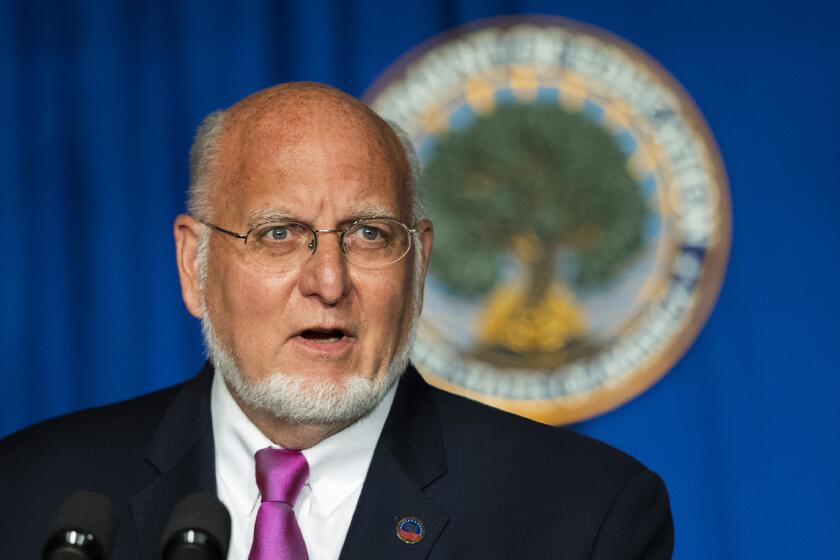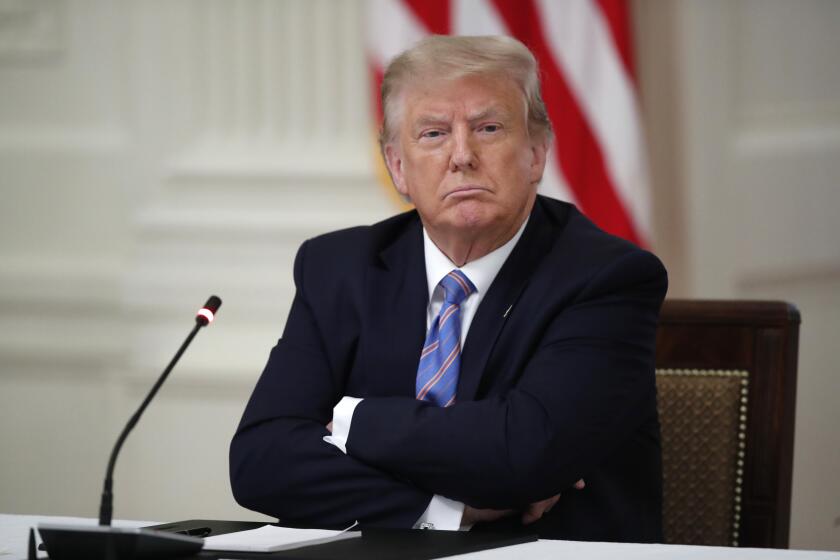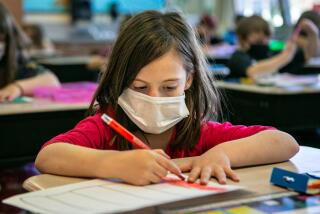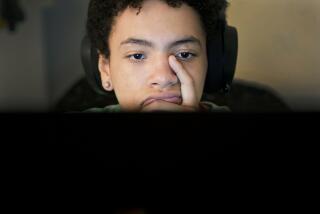U.S. education chief Betsy DeVos downplays risk of opening schools amid coronavirus
The top U.S. education official downplayed the risk of reopening schools in the fall, a high priority of President Trump, and repeated a threat to cut funding to schools that don’t fully resume in-person learning as educators wrestle with the risk of the coronavirus.
Education Secretary Betsy DeVos said on “Fox News Sunday” that “nothing in the data” suggests children being in school is “in any way dangerous” — an assertion challenged by a top public health official on the same program.
“Parents are expecting that this fall their kids are going to have a full-time experience with their learning, and we need to follow through on that promise,” DeVos added.
DeVos’ comments come as U.S. education policy regarding the COVID-19 pandemic has moved to the forefront.
Trump and DeVos last week began to forcefully advocate that public elementary and high schools as well as universities reopen fully to students in the fall despite a resurgence in COVID-19 cases in many parts of the U.S., and suggested that funding could be pulled from schools that don’t comply.
“If schools aren’t going to open they shouldn’t get the funds,” DeVos said on Fox. “Give it to the families.”
A top federal health official says coronavirus guidelines for reopening schools aren’t being revised despite criticism from President Trump
Separately, on CNN’s “State of the Union,” DeVos said there was “no desire to take money away,” but didn’t specifically remove the administration’s threat.
“The rule should be that kids go back to school this fall,” DeVos said, adding that teachers who are at greater risk from the coronavirus because of their age or underlying conditions should work it out with their local school districts.
Guidelines from the Centers for Disease Control and Prevention about how to safely reopen schools are “meant to be flexible and meant to be applied as appropriate for the situation,” DeVos said.
House Speaker Nancy Pelosi (D-San Francisco), appearing on CNN after DeVos, said the secretary’s comments added up to “malfeasance and dereliction of duty. They are messing with the health of our children.”
Tom Inglesby, director of the Center for Health Security at Johns Hopkins University, said on “Fox News Sunday” that while it’s true that children are less at risk of serious COVID-19 infection than adults, the virus can still be dangerous. He cited a 5-year-old who died in South Carolina from the virus.
Additionally, the science surrounding how easily children spread the virus to adults is still murky, Inglesby said.
“There are going to be many challenges with opening schools safely, and just kind of asserting that schools must open safely doesn’t make it so,” Inglesby said.
He cited a large outbreak in schools in Israel after schools reopened. “It seems like that has been relatively uncommon, but there are examples,” he said.
DeVos’ appearances on Sunday continue an effort by the Trump administration to push local and state officials to reopen schools, part of a broader effort to return the economy to normal even as new cases of COVID-19 in the U.S. hit record levels.
DeVos has cited the plans by Fairfax County, Virginia, to bring students back for either no days or two days a week as an example of “false paradigms” she said were being created.
The president complained that his own public health officials’ safety guidelines are impractical and too expensive.
Speaking on CNN, the superintendent of Fairfax County schools said social-distancing recommendations meant the district’s 188,000 pre-kindergarten through 12th-grade students couldn’t be brought back at once.
“We’re the size of five Pentagons — you would need another five Pentagons of space to be able to safely accommodate all of the students,” Scott Braband said on “State of the Union.”
Congressional Democrats say Trump has no ability to defund schools that do not reopen five days a week, and instead urged the administration to approve funding to aid schools as part of a COVID-19 stimulus bill expected to come up for votes at the end of the month.
Senate Democrats have proposed a $430-billion infusion for schools and the Democrat-controlled House passed a bill in May with $100 billion.
They also say they’ll oppose any attempt to give Trump the power to use such future aid to pressure schools to reopen, including by giving students funding to allow them to attend private school instead.
On NBC’s “Meet the Press,” Maryland’s Republican governor, Larry Hogan, said the state’s schools superintendent is working with local districts and health professionals to develop a plan to balance school safety and the educational needs of children.
“Everybody would like to get our kids back to school, as quickly as we can, but we also want to do it and make sure that our kids are going to be as safe as possible,” Hogan said. “So, we’re not going to be rushed into this.”
School district leaders in Phoenix say reopening in August or September is unlikely because of currently high levels of the virus there, with positivity rates topping 20%, Mayor Kate Gallego said on CBS’ “Face the Nation.”
“We’re now seeing many of those elected leaders say we can’t open until at least October with the levels of the virus so pronounced in our community,” said Gallego, a Democrat. “They just don’t feel like it’s a safe environment for teachers to go in, and they’re concerned about our students as well as spread of the virus.”
Former U.S. Food and Drug Administration Commissioner Scott Gottlieb, also on CBS, said local districts should have the discretion to determine their own strategy for resuming in-person lessons, including steps such as reducing classroom density. He called reopening schools a critical issue.
“No other country, with the exception maybe of Sweden, reopened their schools or kept their schools open against the backdrop of so much spread that we’re attempting to do in this country, so we do face a unique risk,” Gottlieb said.
More to Read
Sign up for Essential California
The most important California stories and recommendations in your inbox every morning.
You may occasionally receive promotional content from the Los Angeles Times.












